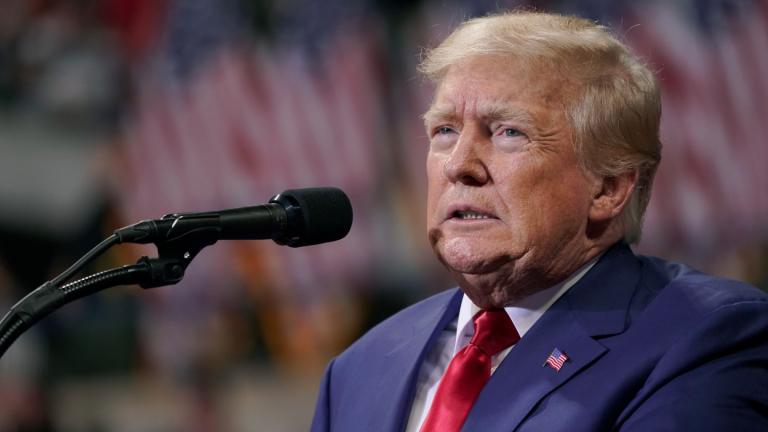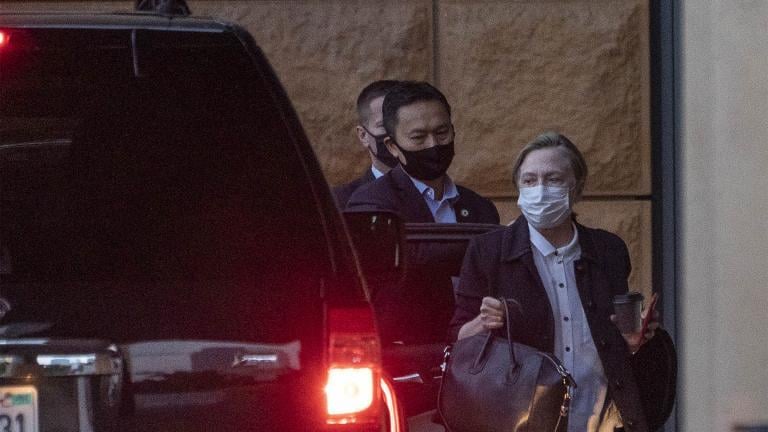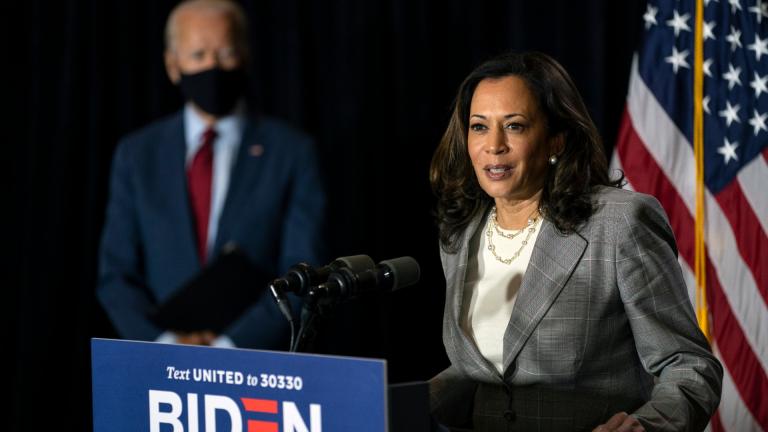In the final days of the 2016 campaign, polls and most pundits were predicting Hillary Clinton would become America’s first female president.
But, as we now know, the polls and the pundits couldn’t have been more wrong.
In arguably the biggest political upset in American history, Donald Trump was elected the 45th president of the United States.
So just what was it that sunk the Clinton campaign?
Joining Carol Marin to share his insight is political journalist Jonathan Allen, co-author of the New York Times best-seller “Shattered: Inside Hillary Clinton’s Doomed Campaign.”
Below, an excerpt from “Shattered.”
![]()
Hillary Clinton had a new rendezvous with destiny on her mind. Her motorcade sped toward Roosevelt Island on the morning of June 13, 2015. In a little more than an hour, she would officially kick off what she hoped would be a trailblazing, glass-ceiling-shattering campaign for the presidency. For most of the previous forty-eight hours, she had been trying to give a feel of historic importance to her first major address. It just wasn’t there yet.
 She picked up the phone and called her chief speechwriter, Dan Schwerin. After two days of trading drafts with Hillary, after waiting through the delay of a power outage at her Chappaqua, New York, home, the bearded thirty-two-year-old with a signature chestnut pompadour was just about to board the tram connecting Manhattan to the East River island. He had stayed up all night, pulling together tweaks to the 3:30 a.m. version of the speech, and he looked hungover. Now, battling exhaustion and the sweltering heat, Schwerin pulled out his laptop one more time and sat down on the platform so that Hillary could dictate her final edits.
She picked up the phone and called her chief speechwriter, Dan Schwerin. After two days of trading drafts with Hillary, after waiting through the delay of a power outage at her Chappaqua, New York, home, the bearded thirty-two-year-old with a signature chestnut pompadour was just about to board the tram connecting Manhattan to the East River island. He had stayed up all night, pulling together tweaks to the 3:30 a.m. version of the speech, and he looked hungover. Now, battling exhaustion and the sweltering heat, Schwerin pulled out his laptop one more time and sat down on the platform so that Hillary could dictate her final edits.
The key passage of the speech was an explanation of why she was running for president: “to make our economy work for you and for every American.” In the middle of that run—about how she would do it and who she would fight for—Hillary wanted to connect herself and her campaign to Franklin Roosevelt, the president who defined the aspirations of the Democratic Party and much of the nation for generations.
“Here on Roosevelt Island,” she said to Schwerin, “I believe we have a continuing rendezvous with destiny.”
He tapped the echo of FDR’s 1936 Democratic convention speech into his computer at 11 a.m. and took the next cable car to the island. Few would notice the last-minute change. The cluttered speech had become a testament to the aimlessness and passive-aggressive infighting that plagued the early stages of Hillary’s campaign. Hillary had tried to put together a team this time that would feature far less internal drama than her failed 2008 bid. Back then, big personalities had clashed openly, aired dirty laundry and strategy details in the press, and sometimes pursued their own goals at the expense of hers. In the intervening years, she’d assigned a lot of the blame for her loss to the warring inside her campaign. But that was hardly the only ailment from 2008 that she hoped to remedy. She hadn’t sold a vision for the country. She’d run away from being a woman instead of leaning into the unique aspect of her political story. To manage her campaign, she’d tapped a friend rather than the top pro. She’d let her husband run wild on the trail. And she had failed to take advantage of the latest technology to build a movement of grassroots supporters and donors.
From a strategic standpoint, she’d dumped millions of dollars into Iowa, the first-in-the-nation caucus, even though that only elevated the importance of her devastating third-place finish there. She’d gone on the attack against a better-liked rival whose platform more closely mirrored the values of the party’s base, creating a boomerang effect on her personal standing. Perhaps worst of all, she’d obsessed over winning the popular vote in big states rather than targeting the all- important delegates and super delegates whose votes at the Democratic convention determined the party’s nominee.
But the idea burned into her mind as much as anything else was that she had lost because she’d hired people who put their own interests above getting her elected. The absence of palace intrigue on her opponent’s side—the “no drama Obama” campaign—was the kind of purpose- driven loyalty she pined for.
Over the next seven years, Hillary would rebuild her political organization while working at the State Department and the Clinton Foundation, punish those who had been disloyal to her, and prepare herself to mount a second bid for the most powerful job on the planet. When she conceded to Obama in 2008, she’d thanked voters for putting “18 million cracks” in the glass ceiling of the presidency. By the time she finished the 2016 campaign, she believed, that glass ceiling would lay shattered beneath her feet. And yet what Hillary couldn’t quite see is that no matter how she recast the supporting roles in this production, or emphasized different parts of the script, the main character hadn’t changed.
Related stories:
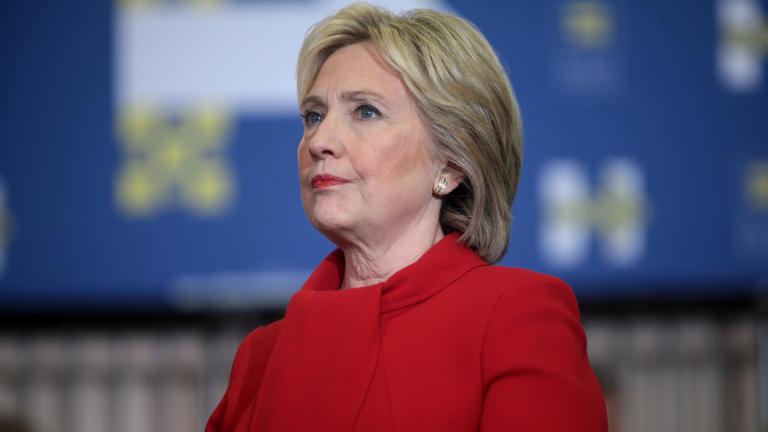 Hillary Clinton Concedes, Calls Loss ‘Painful’
Hillary Clinton Concedes, Calls Loss ‘Painful’
Nov. 9: “I know how disappointed you feel because I feel it too, and so do tens of millions of Americans who invested their hopes and dreams in this effort,” Hillary Clinton said to supporters Wednesday during her concession speech. “This is painful and it will be for a long time.”
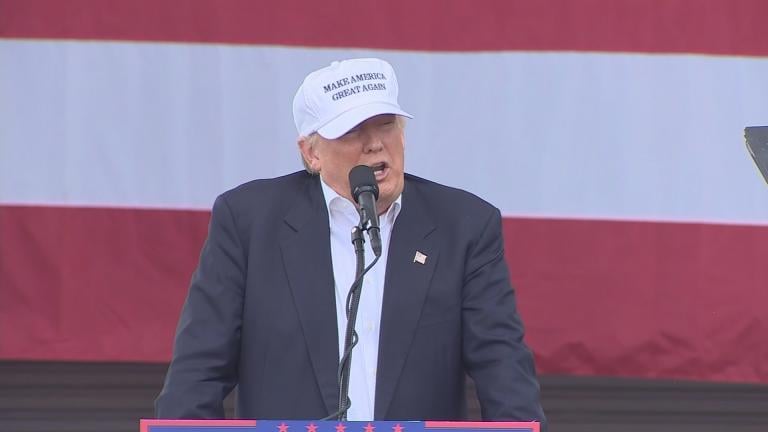 Trump Closes in on Clinton’s Lead in Polls with Election Days Away
Trump Closes in on Clinton’s Lead in Polls with Election Days Away
Nov. 2: Recent polls indicate Republican presidential candidate Donald Trump is closing in on Hillary Clinton’s national lead of about 3 to 4 percentage points. “PBS NewsHour” correspondent John Yang joins us with the latest.
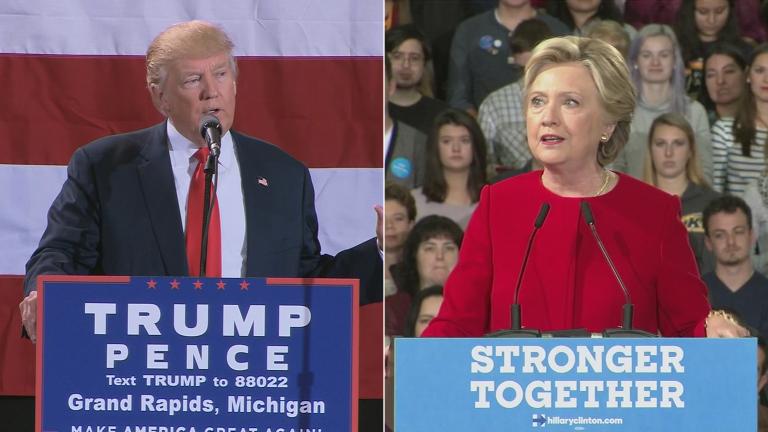 Comey’s October Surprise Rocking the Race for the White House
Comey’s October Surprise Rocking the Race for the White House
Oct. 31: On Friday, FBI Director James Comey revealed the agency is looking once again into emails from Hillary Clinton. “PBS NewsHour” correspondent Lisa Desjardins joins us from Washington, D.C., to discuss the development.

